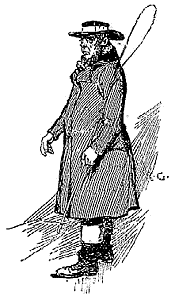| In Quest of a Solution 2 | In Quest of a Solution 3 |
Miss Morstan was muffled in a dark cloak, and her sensitive face was composed but pale. She must have been more than woman if she did not feel some uneasiness at the strange enterprise upon which we were embarking, yet her self-control was perfect, and she readily answered the few additional questions which Sherlock Holmes put to her.
“Major Sholto was a very particular friend of Papa’s,” she said. “His letters were full of allusions to the major. He and Papa were in command of the troops at the Andaman Islands, so they were thrown a great deal together. By the way, a curious paper was found in Papa’s desk which no one could understand. I don’t suppose that it is of the slightest importance, but I thought you might care to see it, so I brought it with me. It is here.”
Holmes unfolded the paper carefully and smoothed it out upon his knee. He then very methodically examined it all over with his double lens.
“It is paper of native Indian manufacture,” he remarked. “It has at some time been pinned to a board. The diagram upon it appears to be a plan of part of a large building with numerous halls, corridors, and passages. At one point is a small cross done in red ink, and above it is ‘3.37 from left,’ in faded pencil-writing. In the left-hand corner is a curious hieroglyphic like four crosses in a line with their arms touching. Beside it is written, in very rough and coarse characters, ‘The sign of the four – Jonathan Small, Mahomet Singh, Abdullah Khan, Dost Akbar.’ No, I confess that I do not see how this bears upon the matter. Yet it is evidently a document of importance. It has been kept carefully in a pocketbook, for the one side is as clean as the other.”
“It was in his pocketbook that we found it.”
“Preserve it carefully, then, Miss Morstan, for it may prove to be of use to us. I begin to suspect that this matter may turn out to be much deeper and more subtle than I at first supposed. I must reconsider my ideas.”
He leaned back in the cab, and I could see by his drawn brow and his vacant eye that he was thinking intently. Miss Morstan and I chatted in an undertone about our present expedition and its possible outcome, but our companion maintained his impenetrable reserve until the end of our journey.
It was a September evening and not yet seven o’clock, but the day had been a dreary one, and a dense drizzly fog lay low upon the great city. Mud-coloured clouds drooped sadly over the muddy streets. Down the Strand the lamps were but misty splotches of diffused light which threw a feeble circular glimmer upon the slimy pavement. The yellow glare from the shop-windows streamed out into the steamy, vaporous air and threw a murky, shifting radiance across the crowded thoroughfare. There was, to my mind, something eerie and ghostlike in the endless procession of faces which flitted across these narrow bars of light – sad faces and glad, haggard and merry. Like all humankind, they flitted from the gloom into the light and so back into the gloom once more. I am not subject to impressions, but the dull, heavy evening, with the strange business upon which we were engaged, combined to make me nervous and depressed. I could see from Miss Morstan’s manner that she was suffering from the same feeling. Holmes alone could rise superior to petty influences. He held his open notebook upon his knee, and from time to time he jotted down figures and memoranda in the light of his pocket-lantern.
At the Lyceum Theatre the crowds were already thick at the side-entrances. In front a continuous stream of hansoms and four-wheelers were rattling up, discharging their cargoes of shirt-fronted men and beshawled, bediamonded women. We had hardly reached the third pillar, which was our rendezvous, before a small, dark, brisk man in the dress of a coachman accosted us.

“Are you the parties who come with Miss Morstan?” he asked.
“I am Miss Morstan, and these two gentlemen are my friends,” said she.
He bent a pair of wonderfully penetrating and questioning eyes upon us.
“You will excuse me, miss,” he said with a certain dogged manner, “but I was to ask you to give me your word that neither of your companions is a police-officer.”
“I give you my word on that,” she answered.
He gave a shrill whistle, on which a street Arab led across a four-wheeler and opened the door. The man who had addressed us mounted to the box, while we took our places inside. We had hardly done so before the driver whipped up his horse, and we plunged away at a furious pace through the foggy streets.
| In Quest of a Solution 2 | In Quest of a Solution 3 |